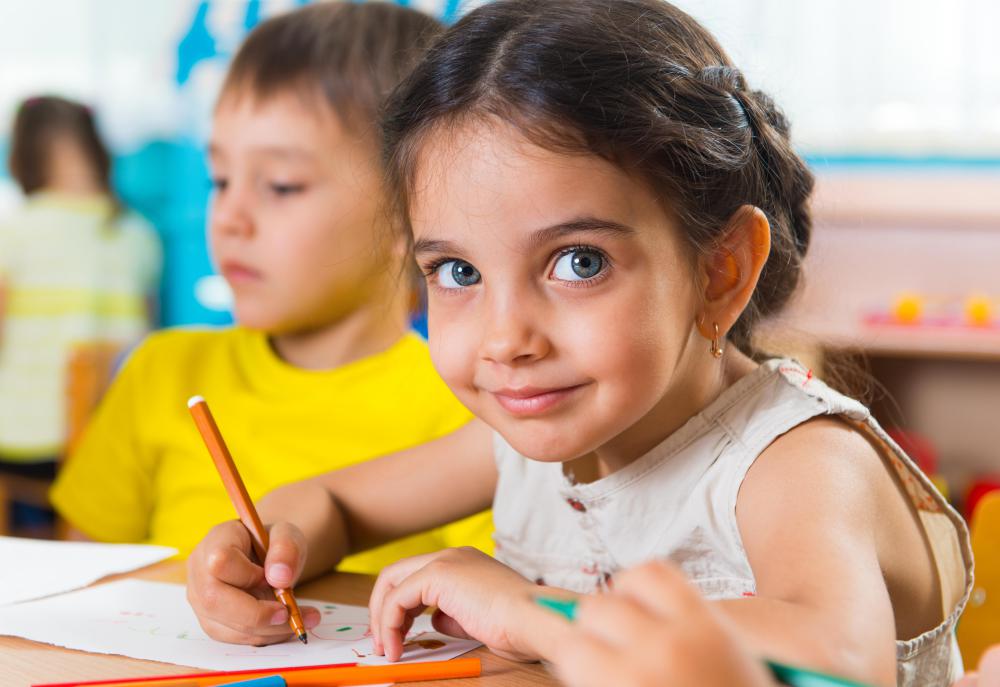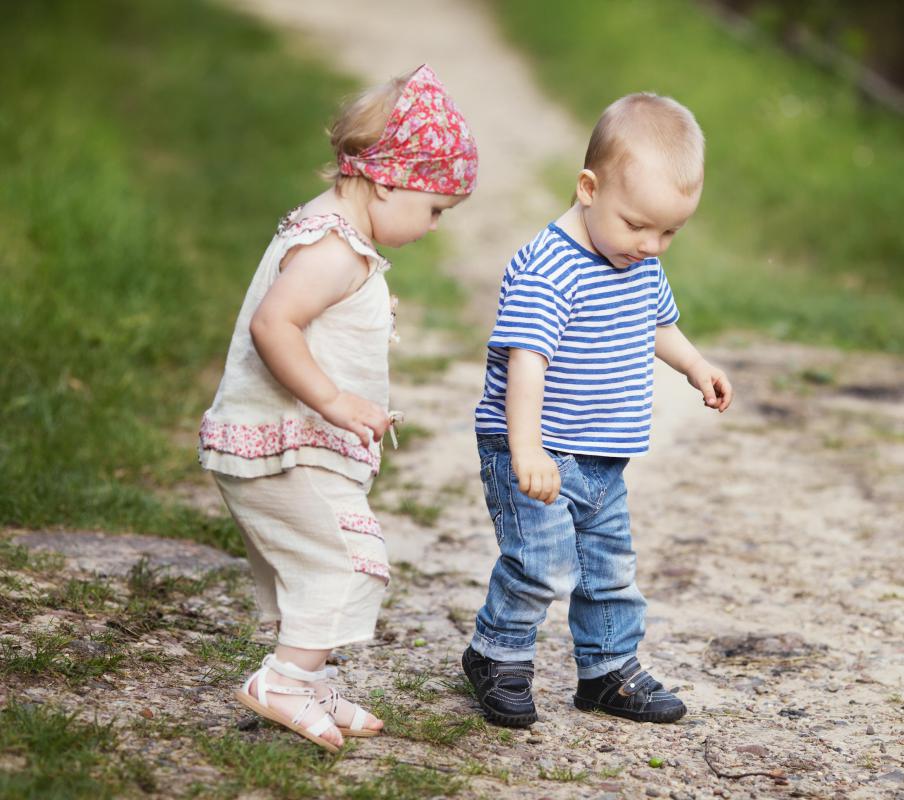At WiseGEEK, we're committed to delivering accurate, trustworthy information. Our expert-authored content is rigorously fact-checked and sourced from credible authorities. Discover how we uphold the highest standards in providing you with reliable knowledge.
What Factors Affect Social Development in Early Childhood?
Many different factors affect social development in early childhood, including a child’s attachment to his or her parent(s) or caregiver(s), as well as how these adult figures interact with others in the child’s presence. The manner in which a parent or caregiver disciplines a child can also affect his or her social development. In many cases, the type of community in which a child grows up, whether it is safe or not, can have a large impact on his or her feelings of security, which can later affect his or her ability to develop and maintain relationships with others.
The root of nearly all aspects of early childhood development is a child’s relationship with those who provide his or her primary care, including how he or she develops socially. When a child is nurtured with trust, consistency, and affection, he or she typically develops a strong relationship to his or her parents or caregivers, which is one of the primary determining factors in whether or not a child feels secure in his or her world. This security, when established early in life, is what gives a child the ability to form these types of strong relationships with other family members, siblings, and those in his or her community. Likewise, a child who does not develop a strong attachment to one or more primary caregivers will typically be too insecure in himself or herself to reach out and trust other people.

For most children, one of the primary factors that affect social development in early childhood is how the adults in his or her life interact with other children or adults. Parents and caregivers, whether knowingly or not, constantly model how the child and other adults should speak to one another and handle simple to complex social situations. The watchful eyes of a child catch many things that the vast majority of adults may not notice, from a snappy response to a loved one, or how a trusted adult compromises with others. Children typically then mimic these modeled behaviors in their own social interactions with peers and adults.

Discipline methods affect more than teaching a child the difference between acceptable and unacceptable behavior, including social development in early childhood. In general, children who have expected behavior explained to them, rather than simply dictated to them, tend to develop a greater understanding of how he or she should interact with others in social settings, and are, therefore, able to apply this information to similar or different situations. For example, a child who is told that hitting hurts others, rather than simply “Do not hit your sibling,” will typically develop an understanding of how his or her actions affect others, rather than only stopping one specific behavior, such as hitting.

Feeling safe throughout the first several years of life plays a large role in social development in early childhood. As attachments to parents or caregivers make a child feel secure, so does feeling safe in the home and community in which he or she lives. In many cases, children who grow up in areas with crime problems tend to have a more difficult time trusting other people, and, therefore, developing relationships with others as they get older.
AS FEATURED ON:
AS FEATURED ON:




















Discuss this Article
Post your comments